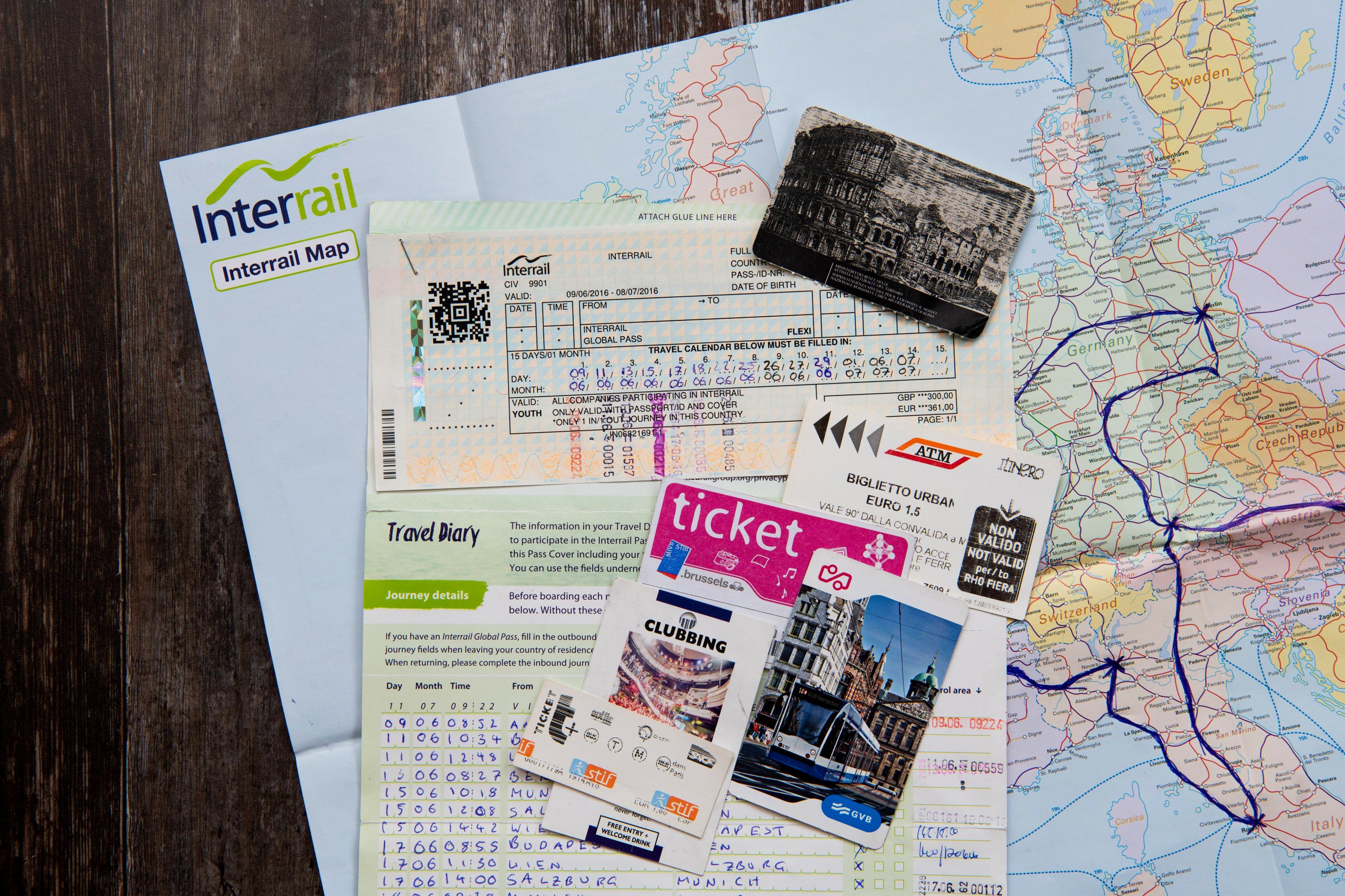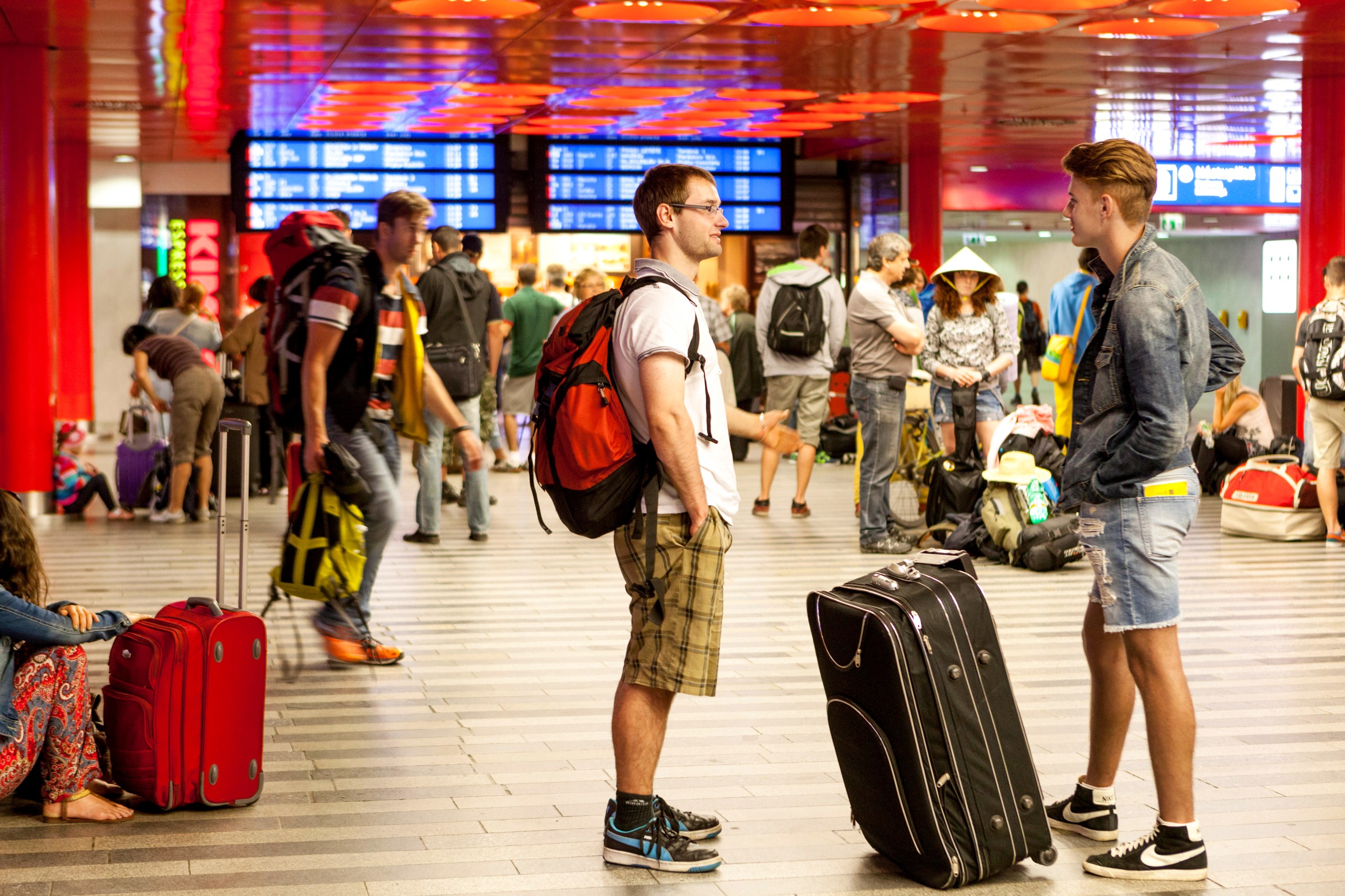Now more than 50 years old, Interrail is more relevant than ever, thanks to the growing popularity of train travel. Gap years are a rite of passage, but for a low-impact backpacking experience, look no further than the European railways. Interrail, an all-in-one train pass that gives you access to most trains in Europe,serves 33,000 stations across Europe, from Lapland to the Greek islands — plenty to keep even the itchiest feet happy for a long time. Travelling, as Interrailing proves, doesn’t have to cost the earth, emissions-wise or financially. Planned right, it’s as much a budget backpacker’s best friend as it was in the 1970s. Here’s everything you need to know to plan your Interrail trip.
Main photo: Interrailing in Spain (Getty Images)
What is the Interrail pass?

Interrail is a multi-train ticket, although some ferries are included. There are two types of pass: “global”, and a ticket valid for one country only. The global pass gives you train travel across Europe (including the UK and Turkey). The full list of member countries is listed on the Interrail website, but Russia, Ukraine, Belarus, Albania and Moldova are not included. Passes allow for between three and 15 days of travel during a month, depending on the package selected.
The one-country pass does what it says on the tin: train travel in the country of your choice, starting from three days of travel within a month-long period. There are certain places where a one-country pass covers multiple countries, such as Benelux (Belgium, the Netherlands and Luxembourg). Book specific trains (where advance reservations are required) via Interrail.eu or using the Interrail Rail Planner app.
Veteran Interrailers will remember receiving a paper pack through the post, but now the vast majority of travellers opt for the app, which will deliver your pass immediately. The app works offline, although don’t expect live timetable updates, delays or strike information. If you’d prefer a paper pass, allow for two to three weeks to receive it. You can’t order an Interrail pass for the country you live in.
Advertisement
You can buy individual tickets from local train lines instead, but with Interrail you’ve got one pass for all your travel, meaning you can be much more flexible with last-minute changes.
• Six of the best European interrailing routes
How much does Interrailing cost?

If you opt for a global pass and you’re lucky enough to be in the “youth” category (12-27 years old), the cheapest pass available gives you ten days of travel within two months for €237 (£203). That’s all your travel costs covered if you stick to trains where advance seat reservations aren’t required. High-speed train services, sleeper services and certain services such as Eurostar cost an extra supplement, as does first-class travel.
Country-specific Interrail passes vary in cost according to the country. Interrail passes in expensive countries (like those in Scandinavia) are costlier. Norway has one of the most expensive Interrail passes, starting from €155 for a 2nd class youth pass, which permits three days of travel in the space of a month. For comparison, a Turkish Interrail pass with the same validity period starts from just €54.
How much should I budget?

Hostels tend to be the cheapest accommodation for solo travellers, and although the price of a dorm bed has ballooned since the pandemic, they generally cost between €10-40 for a night, depending on which country you’re in.
Advertisement
Then there’s meals and activities. If you’re happy to cater for yourself and you’ve chosen a hostel with breakfast included, you should be able to feed yourself by shopping at supermarkets and preparing your own food from as little as €10 a day. To bring down the price of activities, look for free walking tours in the cities you’re visiting. Although marketed as “free”, it’s polite to give a donation based on your means and what you feel the tour was worth.
Generally, you should be able to budget between €50-100 per day and travel comfortably. If you’re prepared to camp and be fully self-sufficient, a much tighter budget is possible.
• 24 best city breaks in Europe for 2024
• 11 of the best hostels in Paris
How can I minimise costs?

It’s no bad thing to have some euros in cash, especially if spending time outside of large cities, but in most countries you can easily withdraw cash using a debit card, or pay by card or contactless payment. Online banks like Monzo, Revolut and Starling charge lower fees than standard banks for transactions abroad. Another option is a travel money card, which you top up in advance for fee-free spending abroad. Remember that not all countries covered by Interrail use the euro (Bulgaria, the Czech Republic, Denmark, Hungary, Poland, Romania, Sweden, Switzerland, Turkey, and, of course, the UK).
Be savvy with your planning. An Interrail pass is all about freedom, and although you may want to wake up each morning and travel whichever way the wind blows you, it’s not the most economical way. High-speed and sleeper train services typically open their reservations 90 days before travel, and the lowest priced tickets are the first to sell. Since you can buy your Interrail ticket up to 11 months before validating it, you’ll get the best rates by buying it as early as possible and booking any trains which take prior reservations as soon as you can.
Advertisement
Make sure you reserve the right age bracket. If you start your trip before turning 28, you’ll still be able to travel on a youth pass for the duration. This means you can buy a three-month youth pass and set off the day before your 28th birthday and enjoy those youth rates the entire trip. Happy birthday to the class of 1996.
Book accommodation in advance, too, and be mindful about what’s going on in the destination. If you arrive in Milan on the same dates as an AC Milan match your hostel bed could quickly cost as much as a hotel would.
Team up with friends. Solo travel is immensely rewarding and still very possible on a budget, but in western Europe in particular, it’s often cheaper to travel in a pair or a small group and rent self-catering properties.
What vaccinations do I need?
If you live in Europe, the UK included, then nothing. However, it’s a good idea to consult your GP before your trip to get tailored advice and to make sure your routine vaccines are up to date — but there’s nothing that you legally are required to have, and that includes a Covid-19 jab.
• Which countries are reintroducing masks? Latest Covid rules explained
What visas do I need?

Advertisement
None, but bear in mind that you can’t spend more than 90 days within an 180-day period in the EU without a visa, and from autumn 2024 this will be formalised by the new entry/exit system. From 2025, all third-country citizens (this includes the UK) will need to apply for an Etias visa waiver when visiting EU countries. It’s all done online and will cost €7. Your passport needs to be valid for three months after your date of return, and be issued less than ten years ago.
• Etias travel permit: what is it and when does it start?
• What is slow travel? The best journeys by train, boat or on foot
Sign up for the Times Travel Newsletter here.

